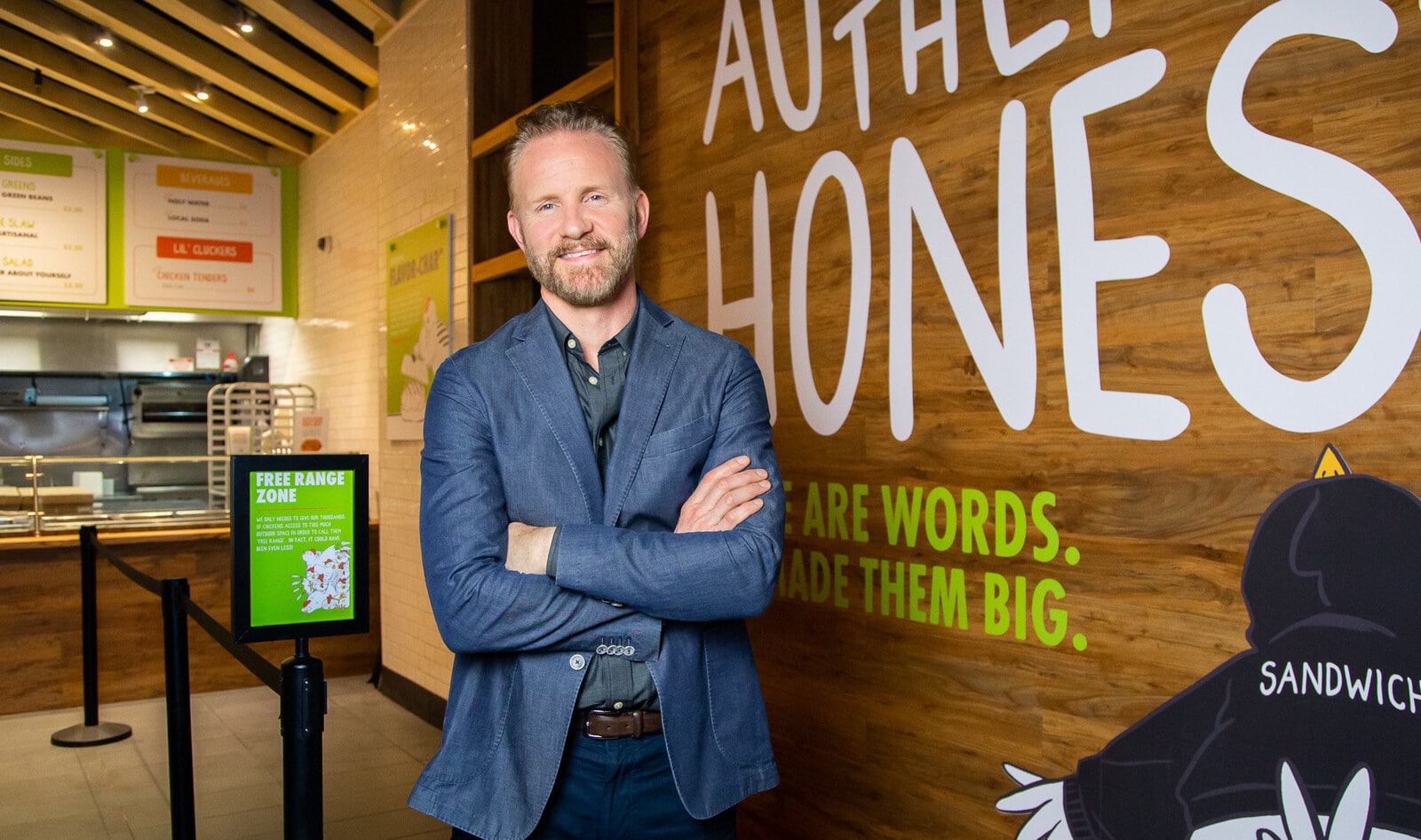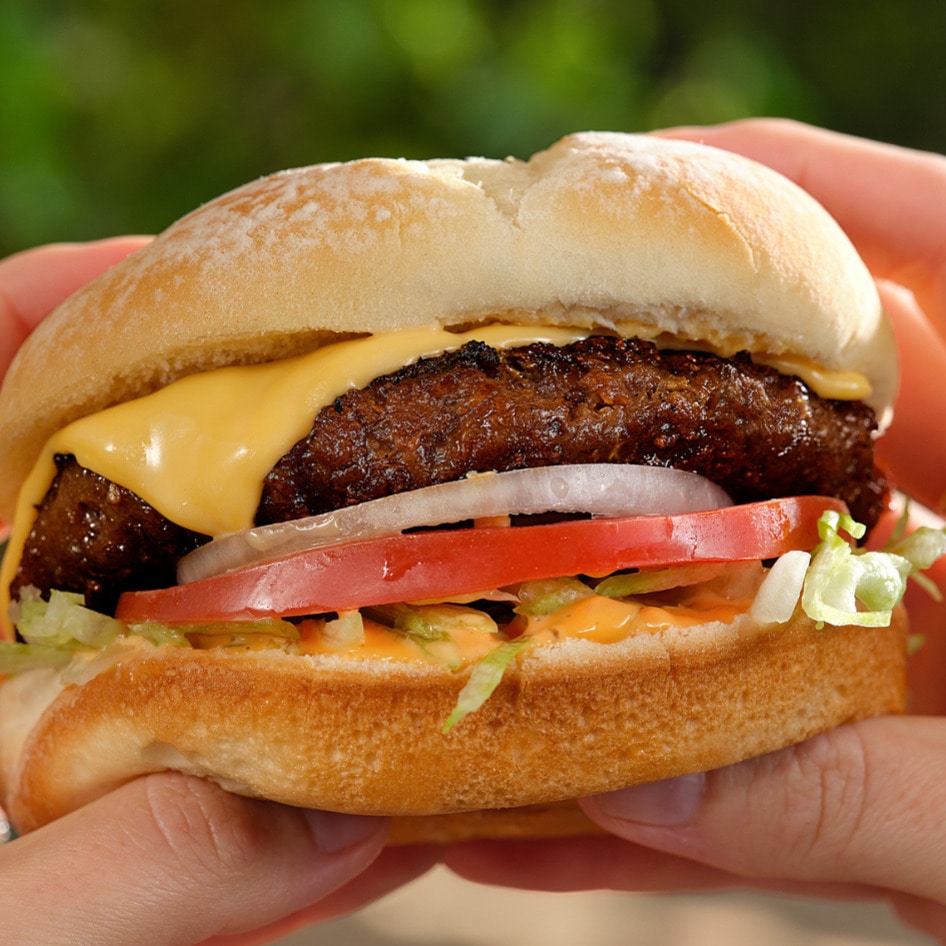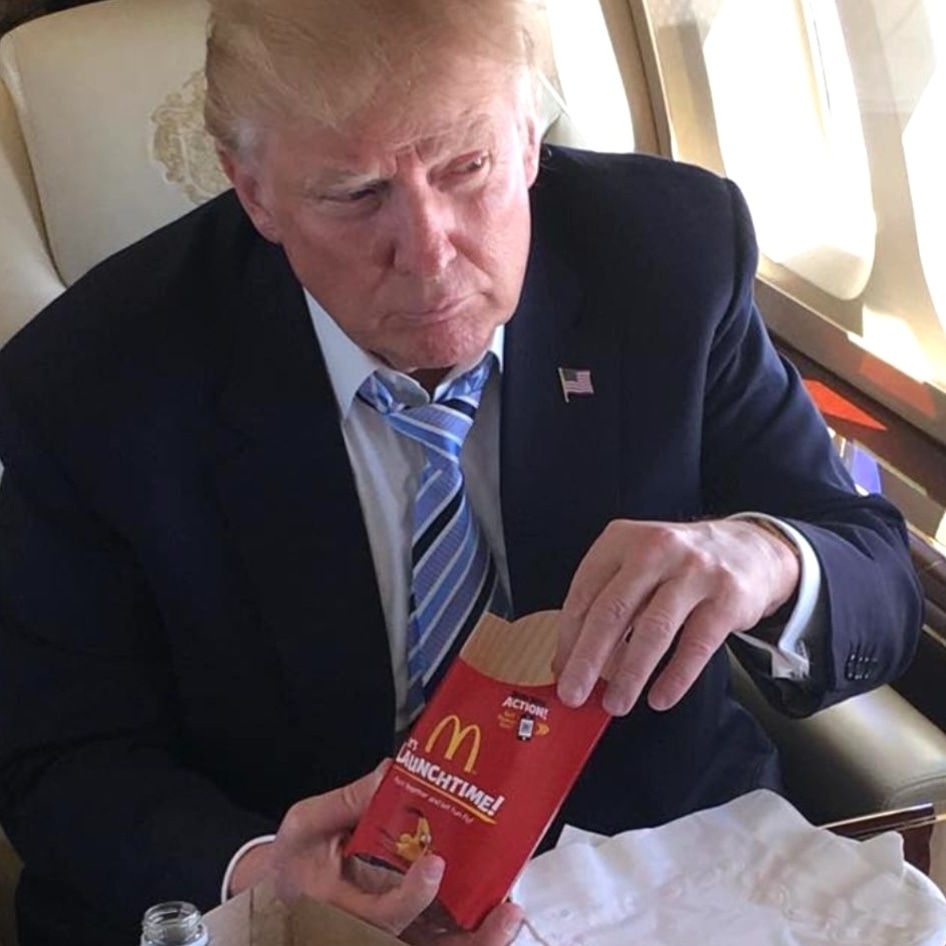It’s often hard to imagine how one person—in a world of nearly 8 billion—can impact the food system. But, filmmaker, director, and producer Morgan Spurlock accomplished just that in his lifetime. Spurlock died on May 23, 2024, in New York, at the age of 53.
 Super Size Me
Super Size Me
Spurlock first catapulted into the public consciousness with his 2004 documentary, Super Size Me. The film was an audacious experiment where Spurlock consumed only McDonald’s food for 30 days.
As anticipated, his health rapidly deteriorated, with a weight gain of nearly 25 pounds, skyrocketing cholesterol levels, and severe mood swings. This eye-opening journey was documented meticulously, sparking widespread debates on the fast-food industry and its impact on public health. And it actually brought about even more change.
How ‘Super Size Me’ impacted fast food
At the heart of Super Size Me was a simple yet provocative question: what would happen if one ate nothing but McDonald’s for a month? The results were alarming and served as a stark reminder of the dangers of a fast-food diet.
Spurlock’s decision to “super size” his meals whenever offered highlighted the industry’s encouragement of overconsumption. His physical and emotional decline over the month painted a vivid picture of the health risks associated with fast food—issues that are now backed by a growing body of scientific research.
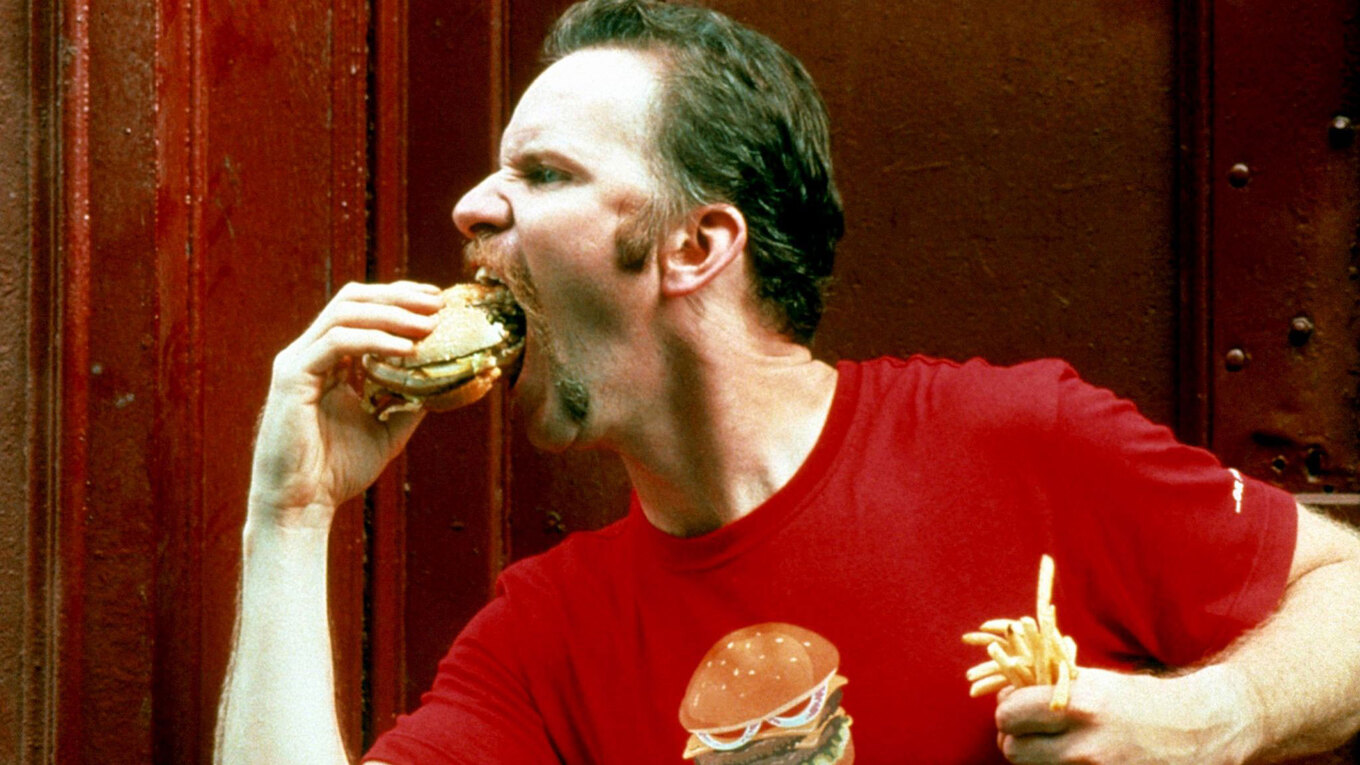 Super Size Me
Super Size Me
The film’s release was timely. Just as Super Size Me hit theaters, McDonald’s was phasing out its super size option and introducing the “Go Active!” Happy Meal, which included a salad, bottled water, a pedometer, and exercise tips. While McDonald’s claimed these changes were in response to broader public health initiatives, the timing suggested otherwise.
The documentary’s impact was noticeable, pressuring the fast-food giant to rethink its menu and marketing strategies.
Spurlock’s influence extended beyond just menu changes. His work played a significant role in the broader movement toward healthier eating. The documentary grossed over $22 million on a modest $65,000 budget, demonstrating the public’s appetite for truth about the food they consume.
It also paved the way for other critical works such as Eric Schlosser’s Fast Food Nation, which further scrutinized the fast-food industry’s environmental and labor practices.
However, Super Size Me was not without critique. Expectedly, Spurlock received criticism from McDonald’s for choosing to eat 5,000 calories per day to prove his point. And the filmmaker admitted that he had been drinking alcohol since age 13 and had not been sober for more than one week in the last 30 years.
Spurlock’s critique of factory farms
In 2016, Spurlock revisited the fast-food industry with Super Size Me 2: Holy Chicken!. This sequel explored how the industry had adapted to criticisms by marketing itself as healthier.
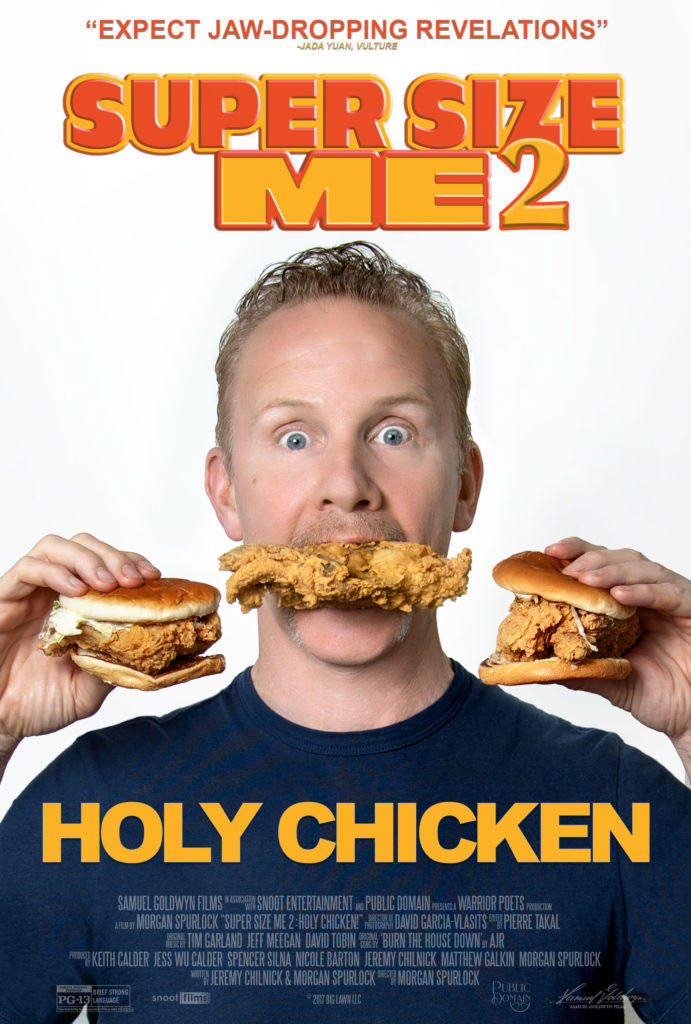 Samuel Goldwyn Films
Samuel Goldwyn Films
The film focuses on chicken-based chains, such as Chick-fil-A, and follows Spurlock as he attempts to open his own fast-food restaurant, Holy Chicken!, to expose how rebranding is more perception than reality.
In the film, Spurlock uses words such as “crispy” and “tempura” instead of “fried,” and bright green colors to give the impression of health. However, when the restaurant finally opens, customers are surprised to find pictures of overgrown chickens on every table, and crowded floor markings that indicate how little space qualifies the birds as “free-range.”
Spurlock’s hands-on style both entertained viewers and educated them about the broken and cruel food system they support with their dollars every day.
 Super Size Me 2: Holy Chicken
Super Size Me 2: Holy Chicken
His work highlighted the broader implications of fast-food consumption. Beyond individual health, the fast-food industry’s practices have significant environmental and social impacts. In addition to being an ethical nightmare, the mass production of meat and other animal products, for example, is a major contributor to greenhouse gas emissions, deforestation, and water pollution.
Additionally, labor practices in the fast-food industry often involve low wages and poor working conditions. By exposing these issues, Spurlock encouraged viewers to consider the broader implications of their food choices.
Spurlock’s legacy
However, Spurlock’s career was not without controversy. In 2017, during the height of the #MeToo movement, he publicly admitted to past instances of sexual misconduct, including allegations of rape and harassment.
His admission led to his resignation from his production company, Warrior Poets, and the cancellation of several projects. “As I sit around watching hero after hero, man after man, fall at the realization of their past indiscretions, I don’t sit by and wonder ‘Who will be next?’ I wonder, ‘When will they come for me?’” Spurlock wrote in a blog post.
“You see, I’ve come to understand after months of these revelations, that I am not some innocent bystander, I am also a part of the problem,” he wrote.
Accountability is the minimum that victims of sexual violence deserve and Spurlock’s misconduct rightfully tarnished his legacy. And despite learning about the atrocities of the animal agriculture industry, Spurlock continued to eat meat.
However, his impact on the food system is undeniable.
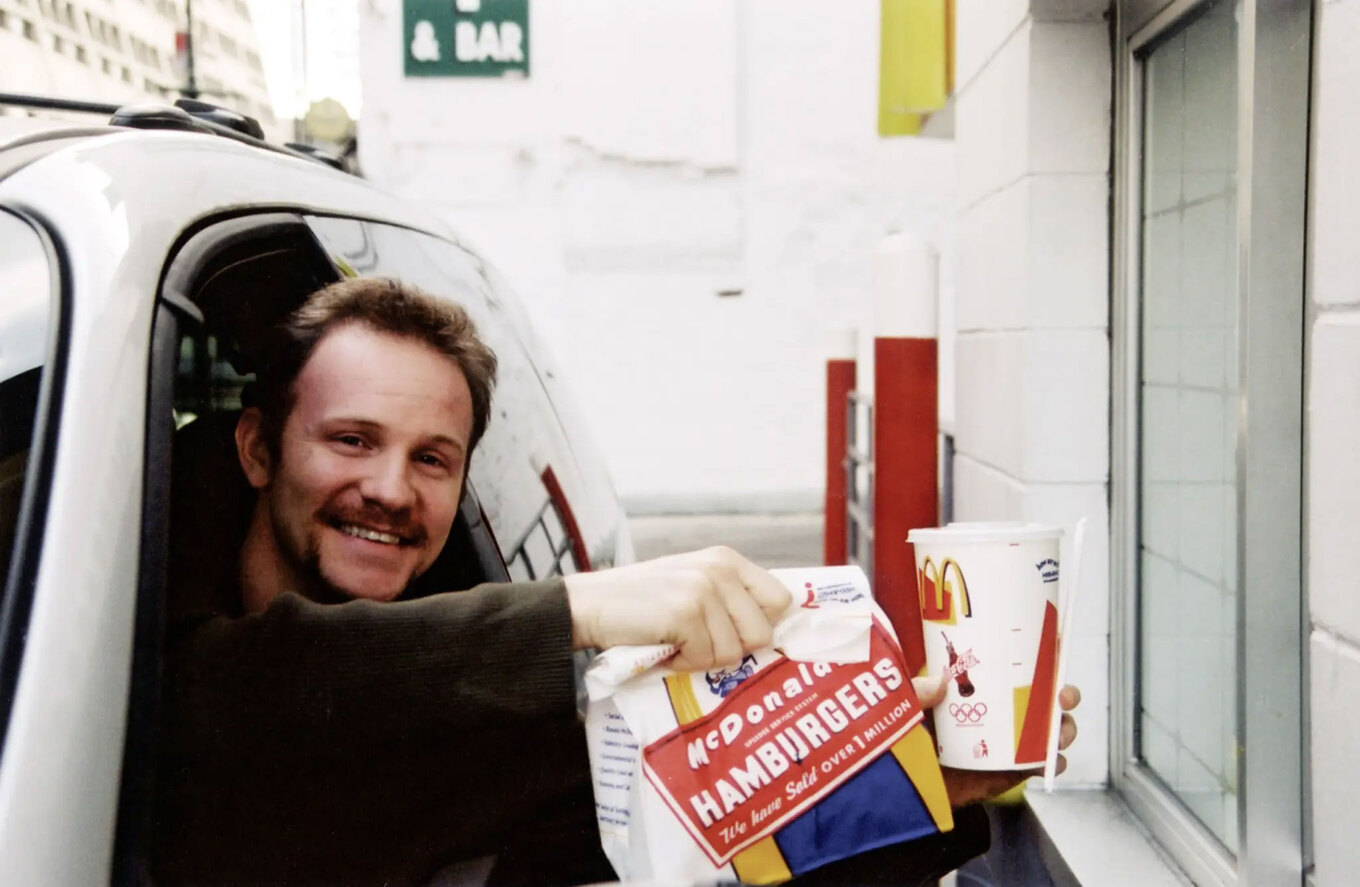
In the years following Super Size Me, there has been a noticeable shift in the food industry. Restaurants and food companies have increasingly marketed healthier, more sustainable options. Terms such as “farm-to-table,” “organic,” and “non-GMO” have become more commonplace.
“We’re at an amazing moment in history from a consumer standpoint where consumers are starting to have more and more power,” Spurlock told The Associated Press in 2019. “It’s not about return for the shareholders. It’s about [the] return for the consumers.”
Despite this shift, Spurlock was honest about the state of the food industry, which is still replete with greenwashing.
“There has been this massive shift and people say to me, ‘So has the food gotten healthier?’ And I say, ‘Well, the marketing sure has.’”
Born on November 7, 1970, in West Virginia, Spurlock passed away at the end of May due to complications from cancer. “Morgan gave so much through his art, ideas, and generosity,” His brother, Craig Spurlock, said in a statement.
“The world has lost a true creative genius and a special man,” his brother said.
For more plant-based stories like this, read:
JUMP TO ... Latest News | Recipes | Guides | Health | Subscribe

